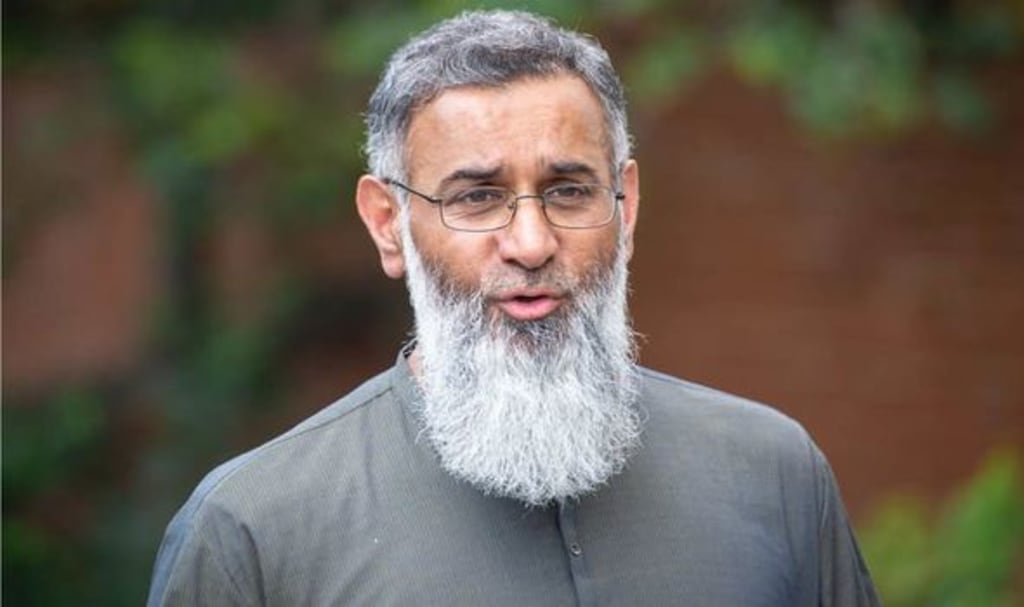Unveiling the Dark Legacy of Anjem Choudary
A Terrorist's Biography

In the realm of radical extremism, few figures have garnered as much notoriety and condemnation as Anjem Choudary. Born on January 18, 1967, in Welling, Kent, England, Choudary would rise to infamy as a notorious Islamist preacher and a key propagandist for violent jihad. While he may have attempted to cloak his rhetoric in the guise of religious piety, the truth reveals a man whose words and actions have fueled hatred, division, and bloodshed on a global scale.
From his early years, Choudary demonstrated a keen intellect and a gift for oratory, traits that would serve him well in his later career as a radical preacher. Raised in a middle-class British-Pakistani family, he received a secular education before embarking on a path of religious radicalization that would ultimately lead him to embrace a virulently anti-Western ideology.
Choudary's journey into extremism gained momentum during his time as a student at the University of Southampton, where he became involved with various Islamist organizations and movements. It was here that he first encountered the teachings of radical clerics such as Omar Bakri Muhammad and Abu Hamza al-Masri, whose fiery sermons and calls for violent jihad resonated deeply with him.
Inspired by these extremist ideologues, Choudary soon emerged as a leading figure within the British Islamist scene, founding several organizations and initiatives aimed at promoting his warped vision of Islamic supremacy and undermining the values of democracy, secularism, and human rights.
One of the most notorious organizations associated with Choudary's name is al-Muhajiroun, a now-banned Islamist group that espoused a radical interpretation of Islam and openly advocated for the establishment of a global caliphate governed by Sharia law. Under Choudary's leadership, al-Muhajiroun became a breeding ground for extremism, attracting disaffected youth and indoctrinating them with its toxic ideology of hate and violence.
Choudary's brand of radicalism was not confined to the realm of rhetoric; he was also actively involved in recruiting and radicalizing individuals to join jihadist groups such as ISIS (Islamic State of Iraq and Syria). Through his sermons, social media presence, and personal connections, he played a significant role in radicalizing a generation of young Muslims, encouraging them to forsake their lives in the West in favor of joining the ranks of terrorist organizations abroad.
But perhaps the most chilling aspect of Choudary's legacy is not his role as a recruiter or propagandist, but his direct involvement in inciting violence and supporting acts of terrorism. Despite his claims to advocate for peaceful means of achieving his objectives, Choudary's words have been directly linked to numerous terrorist plots and attacks carried out in the name of jihad.
One such example is the case of Michael Adebolajo and Michael Adebowale, the two individuals responsible for the brutal murder of British soldier Lee Rigby in Woolwich, London, in 2013. Both Adebolajo and Adebowale were known associates of Choudary and had attended his lectures and demonstrations in the past. It was later revealed that Choudary had played a significant role in radicalizing the attackers, providing them with ideological justification and encouragement for their heinous act.
But the Woolwich attack was just one of many instances where Choudary's poisonous rhetoric inspired violence and bloodshed. From the 7/7 London bombings to the Manchester Arena bombing, his influence has been felt in some of the most devastating terrorist attacks to have struck the United Kingdom in recent memory.
Despite his overt support for terrorism and his role in radicalizing individuals to carry out acts of violence, Choudary has managed to evade serious legal consequences for much of his career. While he has been arrested and prosecuted on several occasions, he has often exploited legal loopholes and technicalities to avoid lengthy prison sentences.
In 2016, Choudary was finally convicted of inviting support for ISIS and sentenced to five and a half years in prison. However, he was released on parole in 2018, having served less than half of his sentence. His early release sparked outrage and concern among counterterrorism experts and lawmakers, who warned that he remained a significant threat to national security.
Since his release from prison, Choudary has attempted to rebrand himself as a moderate voice within the Muslim community, but his efforts have been met with skepticism and condemnation. Many view his supposed rehabilitation as nothing more than a cynical ploy to evade scrutiny and continue spreading his toxic ideology under the guise of religious freedom.
In the end, the story of Anjem Choudary is a cautionary tale of the dangers of extremism and the devastating consequences of hate speech and incitement to violence. His legacy is one of division, fear, and tragedy—a reminder of the urgent need to confront and combat radicalization in all its forms.
As we reflect on the life and deeds of Anjem Choudary, let us not forget the victims of terrorism whose lives have been shattered by his words and actions. Let us stand united against hatred and intolerance, and let us work together to build a future where all people can live in peace and security, free from the scourge of extremism and terrorism.
About the Creator
Sahil Lathwal
I'm Sahil, a passionate writer. My voice weaves stories, emotions, and melodies into an enchanting tapestry. Welcome to my world of creativity and expression. 🎶📝🎤





Comments
There are no comments for this story
Be the first to respond and start the conversation.